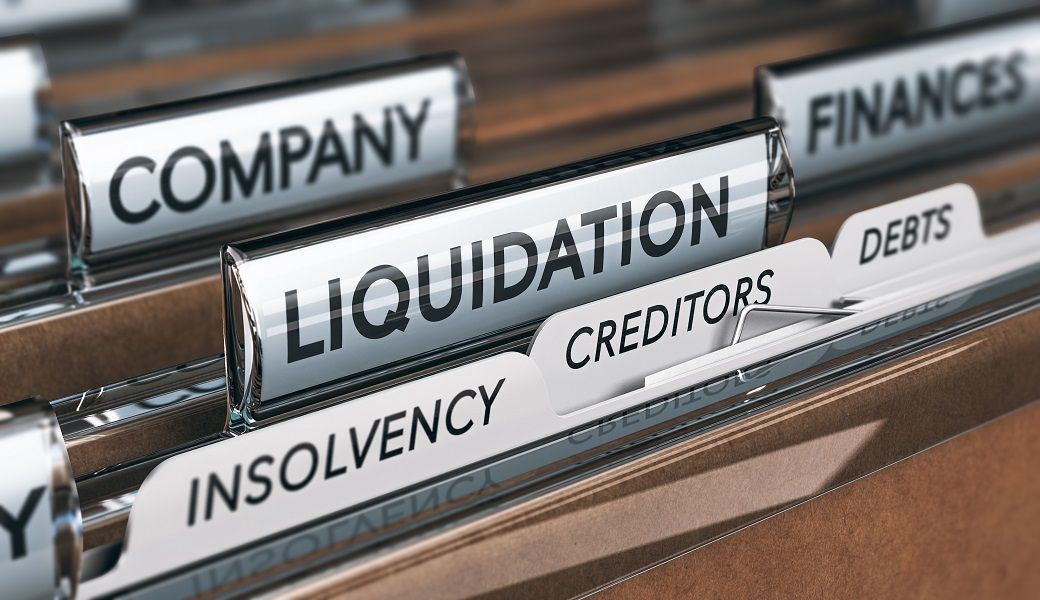Liquidation can be a challenging procedure, but Creditors Voluntary Liquidation offers transparency and control that could help ease the strain of a company’s financial issues. When a company faces impossible debt, creditors’ voluntary liquidation is an option to help the company wind down while shielding personal assets from creditors. The process is initiated by directors of a business who recognize that their debts far outweigh their assets. When they decide to opt for a CVL, directors can take charge of the situation and choose their own liquidators, and limit the impact on staff and customers. While it’s difficult to take Creditors’ voluntary Liquidation gives business owners the chance to learn from mistakes made in the financial sector to become stronger in the future.

If a business is unable to meet its financial obligations liquidation becomes a necessary step to pay off outstanding debts and to wind down the company. The liquidation process for a business can be a difficult and complicated process, and involves the sale of assets in order to pay debtors. It is crucial to be aware of the process of liquidation as well as to locate a reliable liquidation company to help you.
There are many types of liquidation for companies available in the UK, including compulsory liquidation, voluntary liquidation, and creditors voluntary liquidation. Your company’s circumstances will determine which type of liquidation you choose.
Directors and shareholders of a business can decide to liquidate the company on their own if they feel that the business is insolvent or cannot continue operating. It is a cheaper liquidation, and is more easy to execute than a compulsory liquidation, which is ordered by a court.
The creditors’ voluntary liquidation commonly referred to as the creditor’s voluntary liquidation is a voluntary liquidation that is initiated by business’s creditors when they believe the company is insolvent and cannot pay its obligations. This kind of liquidation permits the company to repay its creditors in a timely method, with the assistance of an authorized liquidator.
When liquidating a company the primary objective of the company liquidator is to maximize the value of assets of the company to pay off its creditors. The liquidator will sell the assets of the company, including inventory, equipment and properties and uses the proceeds to settle outstanding loans. When creditors have been paid, any remaining money is distributed to shareholders.
It is vital to select a liquidation company that is experienced and has reliability to guide you throughout the process. Here are a few key things to look for when choosing a liquidator for your business.
Expertise and experience: Look for a liquidator with vast experience in the business with a track record of successful liquidations. Find a company with an authorized team of insolvency professionals who can offer the best advice and guidance throughout the process.
Transparent pricing: Liquidation can be a complicated and expensive procedure, which is why it’s vital to locate a company that has transparent pricing with no hidden costs. Look for a company which provides an accurate cost breakdown upfront.
Professionalism and integrity: Choose a liquidation firm that is operating with integrity and professionalism. Find a liquidation firm which adheres to ethical standards and is registered with regulatory bodies.
Services that are customized: Each company is different, and your liquidation will be different. Look for a company who provides personal service and tailors their approach to meet your particular needs.
Reliability and availability. Liquidation is a highly-demanding and stressful process. It is important to choose a liquidation company that will be available when you require it. Find a liquidation firm who can provide guidance and guidance at all times.
It may seem daunting initially, however, creditors voluntary liquidation could be a beneficial option to look into if you’re struggling to run your business and need significant assistance. Be aware that it isn’t going to save your company overnight. It is essential to adopt proactive steps. It could involve engaging an independent expert insolvency consultant using effective cost-cutting strategies and seeking out customised solutions and coping with any ongoing costs. There is a way to save a business through debt relief, alternatives to restructuring, such as liquidation for creditors at a voluntary basis, and other methods. All you require is the best team. Having an experienced professional by your side giving honest suggestions is crucial in times of change. Be aware and formulate an action plan to succeed if CVL is a viable choice for your business. Financial stability could help restore confidence and security to your business.
For more information, click company liquidator